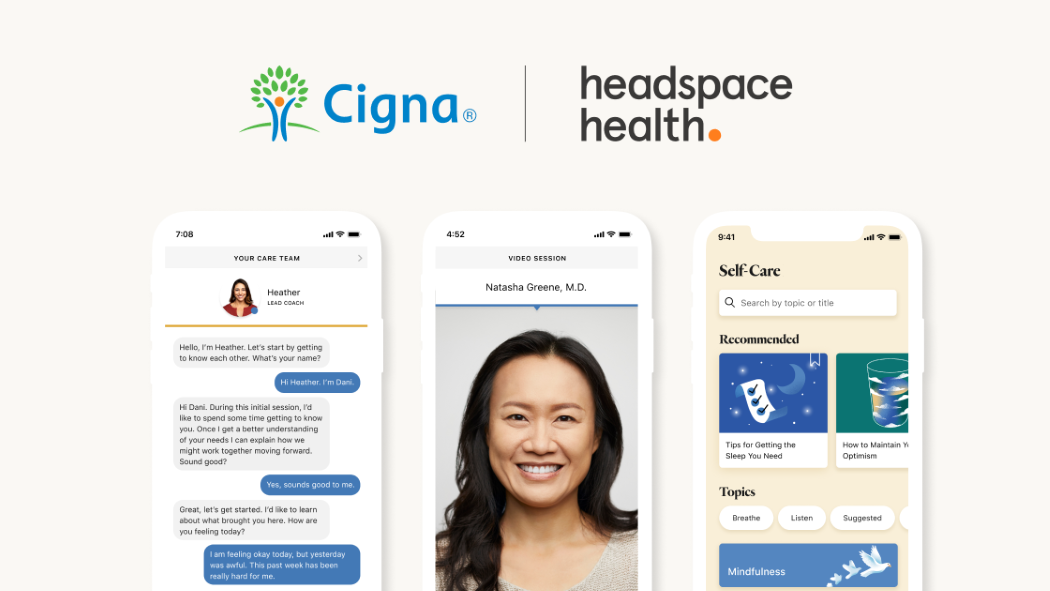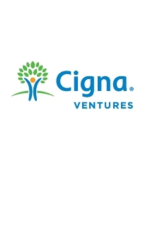Ginger founder Karan Singh sits down with us to talk about mental health and how digital technology has the power to remove barriers to access and bring more personalized care to all.

During his time at the Massachusetts Institute of Technology (MIT), Ginger founder and chief operating officer Karan Singh found himself on the other end of a phone call with a loved one who struggled with depression and had attempted to take their own life.
“This experience shook me to my core and provoked me to dig into our current mental health care system to understand why it failed my loved one and countless others."Karan Singh, founder and chief operating officer, Ginger
In 2011, Singh teamed up with other entrepreneurs and scientists from the MIT Media Lab to form a group committed to reinventing the way mental health care is delivered around the world. They sought to build the world’s first mental health technology platform. Using smartphone-based technology, the Ginger platform is designed to identify patterns of anxiety, stress, and depression, and to alert patients and their health care providers when patients need care.
The name Ginger is personal to Singh. When he was young, his mother would brew ginger tea when she could sense that he was about to get sick. “In many ways, she knew me better than I knew myself,” he said. “The ginger root is a preventative health remedy that originates from South Asia, commonly used at the first sign of illness, before things get worse. Similarly, our Ginger system takes a preventative approach to mental health, addressing issues before they evolve into greater challenges and providing support anywhere, at any time.”
Cigna and Ginger have had a strong relationship that started in early 2020 when Cigna Ventures (the strategic venture fund of Cigna Corporation) invested in the startup. Since then, Cigna has made Ginger’s on-demand platform available to 14 million members. We interviewed Singh, below, to learn more about the Ginger platform, mental health, and how digital technology is transforming care.
Tell me about Ginger and how the platform works.
Ginger offers convenient, high-quality mental health care for all of life’s moments, right from a smartphone. As a licensed health care provider in all 50 U.S. states, we provide our members with the full continuum of mental health services, including self-guided care, behavioral health coaching, therapy, and psychiatry. Members can chat via text with a coach live, 24/7, 365 days a year. If needed, members can secure a video session with a therapist or psychiatrist more quickly than most in-person appointments.
Ginger’s team-based approach to mental health care has been proven to reduce symptoms of depression and anxiety. Peer-reviewed research shows that people who receive care through Ginger see an average of 59% improvement in anxiety and 70% improvement in depression.
In 2021, Ginger merged with Headspace to form Headspace Health, coming together at a critical moment in our global mental health crisis with the mission to transform mental health care to improve the health and happiness of the world. Together, we touch the lives of over 100 million people in 190 countries. Through our flagship Headspace brand, we provide mindfulness tools for everyday life, including meditations, sleepcasts, mindful movement, and focus exercises. Our enterprise brands, Headspace for Work and Ginger, are distributed through over 3,500 enterprises, including Starbucks, Adobe, Delta Air Lines, and Paramount; and through health plans such as Cigna. Our members and enterprise partners’ employees have access to mindfulness and meditation tools, cognitive behavioral therapy (CBT), coaching, therapy, and psychiatry, ultimately helping them to be healthier and more productive. Our combined expertise in consumer brand, evidence-based interventions, and technology improves resilience, reduces stress, and provides treatment to the millions of people around the world experiencing mental health symptoms, from anxiety to depression to complex diagnoses.
Can you talk about the mix of digital and human care?
This is such an important question in digital mental health care. There is a lot of buzz around digital technologies – artificial intelligence, machine learning, and chatbots – replacing the human care experience. For us at Headspace Health, and specifically within our Ginger system, we think about AI not as artificial, but augmented, intelligence. Our technology surrounds and supports our providers, reducing – and in many cases eliminating – administrative burden (which is a known contributor to burnout in this industry) as well as providing insights that can’t be derived from traditional care channels. In essence, we are supercharging our care teams to focus on what matters most: caring for themselves and for our members.
Talk to me about how digital – in general – is helping to lift some of the stigma attached to mental health and asking for help?
We’ve made tremendous progress as a society over the past decade in lifting the stigma around mental health issues and mental health support, and I believe that digital mental health care has played a pivotal role in this. With platforms like Ginger, you can access mental health care anytime, anywhere, and receive discreet, confidential support within seconds. The move toward digital mental health care has reduced an incredible number of barriers to care, including factors as simple as picking up the phone to make the appointment, driving to an office, parking your car in a place it might be identified, etc. For individuals who may have previously felt the pressure of these barriers or stigma from family members, peers or their community, digital platforms create a safe, accessible option to get the support they need, when they need it.
Ginger provides personalized care. How do you do that? Why is it important?
There is truly no-one-size-fits-all approach to mental health care. In our team-based care model, Ginger’s coaches, therapists, and psychiatrists work together to ensure employees are fully and seamlessly supported with a personalized care plan. We also leverage an evidence-based approach to care, monitoring progress through regular check-ins using evidence-based surveys. This provides the member’s care team with visibility into what’s working and what areas they need more support with to shape their care plan accordingly over time.
You are able to measure the progress of mental health—something that's traditionally been hard to track. What trends have you seen in the last few years?
I love this question. Our mission at Headspace Health – to transform mental health care to improve the health and happiness of the world – is simply not possible without measurement. Measurement-based care, the practice of systematically collecting data throughout treatment to incorporate into clinical care, provides insight into treatment targets and progress, recognizes and reduces symptom deterioration, and improves outcomes. Although measurement-based care has been demonstrated to enhance care, studies have shown that less than 20% of behavioral health practitioners integrate it into their practice.
The Ginger system incorporates regular check-ins and feedback to better understand what solutions work for what types of patients. Ginger assesses depression via the nine-item Patient Health Questionnaire (PHQ-9). The PHQ-9 is one of the most validated assessments in mental health and is commonly used by clinicians in diagnosing depression and monitoring treatment response. To assess and track anxiety outcomes, Ginger uses the Generalized Anxiety Disorder Screener (GAD-7), which is well-validated in the general population.
One of the trends we see and are exploring within our own system is expanding to more subclinical or nonclinical measures to assess general well-being and function beyond specific clinical conditions. We currently assess resilience and adaptability, using CD-RISC-10, which has demonstrated robust validity, reliability, and practicality in measuring resilience. A multidimensional construct involving variables such as temperament and personality, resilience relies on problem-solving skills that enable individuals to cope with traumatic life events. Finally, we have lots of exciting data science efforts working toward measuring mental health without directly surveying the member – both through natural language processing/machine learning and other novel sources of data.
How are you using this data to improve your platform/services?
Data-driven improvement is core to our company and infused across many teams. A few examples:
- Our Research team conducts real-world studies of our outcomes data to better understand our members and system. We publish many of those studies in peer-reviewed journals and feed these learnings back to our care and product teams.
- Our Quality Assurance (QA) team monitors key quality (structure, process, outcomes) measures to ensure we’re providing high quality care. This information is then shared with coaches and clinicians through individual reviews, QA reporting sessions, and clinical rounds so that the care team incorporates feedback into future care. Such data may be used to alter a treatment plan as needed, including increasing or decreasing the level of care. If coaches or clinicians are identified as lacking in any area, managers monitor them through regular meetings, provide them with ongoing feedback and training to remedy any skill or knowledge deficits, and re-evaluate them on a monthly basis, as needed, to offer support and ensure improvement. Ginger encourages and supports access to continuing education programs to support a growth mindset for our providers.
- Our Data Science team is using cutting-edge methods to predict outcomes and automate processes and workflows so that our care providers can focus on what they do best – providing care. This includes supporting the automation of care team notes, personalizing care plans based on conversations, and predicting demand based on various market factors.
- Our Business Operations team leverages a variety of data sources to understand when members from our health plan, employer, and other channel partnerships across our various product lines, including adolescent and bilingual, will access our care. We map this data against our existing care capacity to ensure we hire to meet any new forecasted demand and ensure on-demand support.
What has it been like working with Cigna Ventures – what value have you gotten out of the partnership to advance your strategy and solution?
We were thrilled to team up with Cigna Ventures as part of our Series D funding round in August of 2020. The team provided us with incredibly valuable strategic counsel. They’ve helped educate us on the opportunities and gaps that exist across the behavioral health market, diving deep into the economic incentives that influence various parties across the ecosystem. This guidance helped shape our thinking around how to structure our offering to unlock coverage for preventative behavioral health coaching for a variety of payers across the health care ecosystem. And through our partnership with Cigna, we’ve been able to bring our behavioral health solution to over 14 million customers. More recently, we’ve made it available as an integrated EAP benefit offering with Cigna employer clients.
What's next for Ginger? What are you looking to double down on in the next 12 to 18 months?
As I’ve mentioned, we were fortunate to combine forces with Headspace this past year to form Headspace Health. Together, we have a bold vision of a world where everyone is kind to their mind. Over the next 12 to 18 months, we’ll be focused on achieving this vision by continuing to provide real-time access to high quality, equitable care. Our goal is to reach people whether they are struggling, thriving, or anywhere in between. We’ll also be focusing on destigmatizing mental health through compelling brand experiences and continuing to combine compelling content and proven, evidence-based care. Finally, we’ll be focused on continued collaboration with global health care payers and providers to help further innovation and unlock affordable access to care to millions more members across the country and the globe.

Cigna Ventures: Health Care Venture Capital
We partner closely with entrepreneurs who share our tenacity to unlock bold new opportunities to improve people's health and make health care more affordable, predictable and simple.
